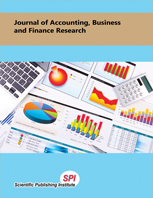Information disclosure and SME financing: A study of firms in the ASEAN region
DOI:
https://doi.org/10.55217/102.v17i2.720Keywords:
Collateralized lending, Credit, Financing, SME finance.Abstract
This study investigates the impact of information and communication technology (ICT) and audited financial statements on small and medium enterprise (SME) financing, as well as their influence on SMEs’ collateral issues in acquiring bank loans, based on the information asymmetry theory. The study applies the ordinary least squares (OLS) test, the two-stage least squares test, and the probit regression model for the analysis. The sample consists of 12,165 firms in eight ASEAN countries between 2009 and 2018. The data used in the analysis was sourced from the Business Environment and Enterprise Performance Surveys (BEEPS) provided by the World Bank. The results reveal that financial statements and ICT have a positive relationship with SMEs’ bank credit accessibility and a negative relationship with collateral issues faced by SMEs in accessing bank loans. Thus, SMEs that use financial statements and ICT have more financing opportunities than those that don’t. The impacts of financial statements and ICT are stronger in counties with a more developed financial infrastructure. Additionally, this study found that economic development enables SMEs to access cheaper finance and mitigate collateral problems. These outcomes contribute to the enhancement of SME financing and promote SMEs’ information disclosure in the ASEAN region. Promoting SMEs’ information disclosure is also crucial for banks in mitigating bad debt. Therefore, encouraging and supporting SMEs to adopt financial statements and ICT can be beneficial to both SMEs and banks.


